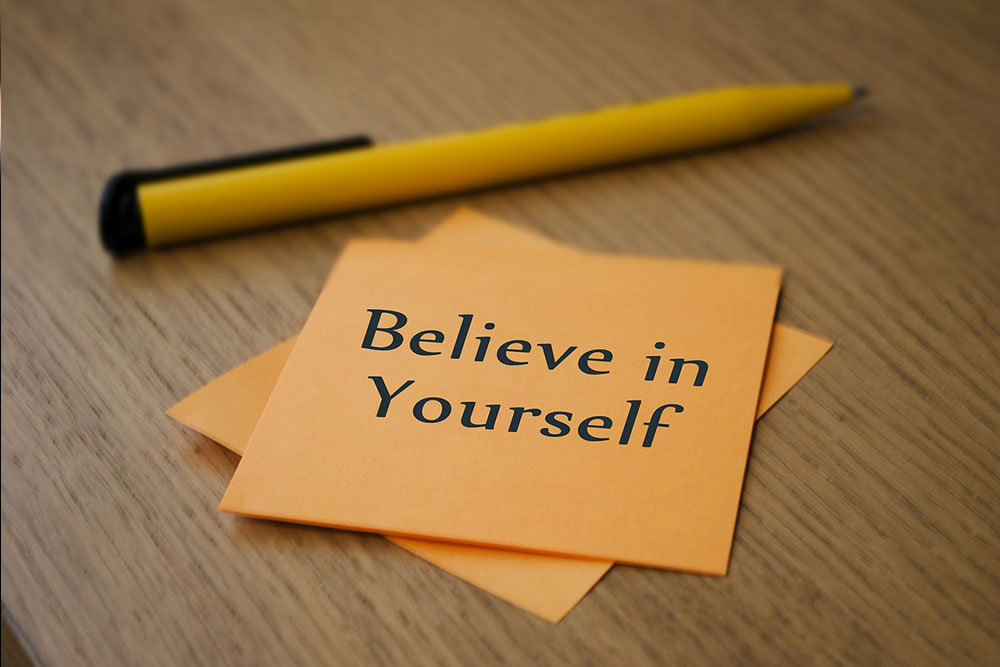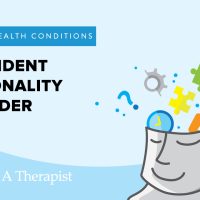The Difference Between Self-Esteem And Self-Confidence
Published on February 2nd, 2021
Updated on January 3rd, 2024

Both self-confidence and self-esteem can be a challenge to achieve in life. There are moments where we can lose confidence in ourselves. There are moments where we can not feel good about who we are, what we have accomplished, and where we are going in life. Our levels of both self-esteem and self-confidence can have an impact on how we see ourselves. They can affect how we relate to the people around us.
While both self-confidence and self-esteem can feel similar, they are each quite different. Each affects us differently. In order to develop a good sense of self-self-confidence and self-esteem, it is important to understand what they are and how they affect each other.
In order to achieve self-satisfaction, it is important to build self-confidence and self-esteem. Each will affect the other. If we build confidence in ourselves, our self-esteem will grow. If we have a healthy sense of self-esteem, it will be easier for us to feel confident in times of ease and in times of trial. To begin building self-confidence and self-esteem, learn what the terms mean and how they affect your self-image.

What Is Self-Confidence?
Self-confidence is the sense of trust you have for yourself. While it is possible to have an overall sense of self-self-confidence, it can also be situational. We all feel varying levels of self-confidence based on the situations we find ourselves in. Some things we may feel very confident in, while other things we may not feel confident in at all.
Our level of self-confidence relies on a few factors. For instance, the more we are exposed to a situation, the more we will understand about how to handle that situation. The information we collect through exposure boosts self-confidence. This is because we trust ourselves to take what we have learned in the past and apply it to how to handle the situation now.
Another factor that influences self-confidence is how prepared we are to confront a challenge. When we are faced with new or unexpected challenges, our self-confidence may be low. This is due to a lack of mental, physical and emotional preparation for the challenge. If we feel unprepared, we may feel vulnerable. Feeling vulnerable will have an effect on our self-confidence. We may not believe in ourselves to be able to handle a situation. Facing the challenge head on, even if you feel unprepared, can help you learn how to handle it and boost confidence in yourself.

What Is Self-Esteem?
Self-confidence is a contributing factor to how self-esteem develops. Self-esteem is the sense of satisfaction, security, and acceptance a person has for themselves. It is a sense of comfort and appreciation a person has for who they are. Self-esteem can be difficult to maintain. This is because it requires a balance between being content with who you are and for the things you lack or have not yet achieved.
Self-esteem is developed based on a number of different factors. A person with high self-esteem will be able to feel good about themselves, and promote self-forgiveness in times of trial. People with low self-esteem will struggle to feel comfortable in their own skin. They may dislike or resent who they are, and often feel insecure around others.
A person builds their self-esteem based on their own self-image. They take information about themselves that they learn from interacting with the world. People who have positive and supportive relationships are likely to develop a healthy sense of self-esteem.
Sponsored by

Choose a therapist to work with and start healing with 20% off from BetterHelp.
Click HerePeople who struggle to feel good about themselves, struggle with their self-image, or have people in their lives who put them down, will have low or unhealthy self-esteem. They will not like themselves at times. They will struggle to feel confident when faced with life challenges.

How Self-Confidence And Self-Esteem Affect Each Other
Self-esteem will impact on how confident you feel. If you lack a sense of self-esteem, you may end up also lacking self-trust. Without self-trust, you will lack self-confidence. Because self-esteem is a part of building self-confidence, it is important to build and reinforce a sense of personal self-esteem. This will help to support the moments when you need to feel confident. If you have a healthy self-esteem, you are more likely to feel confident, even if you are feeling vulnerable, unprepared or ill-informed about a situation.
People who have low self-confidence tend to struggle with their self-esteem. Self-esteem is an overall sense of self-love. When a person does not love who they are, they will struggle to develop self-trust to face challenges, even if they have faced the same or similar challenges in the past. This results in a lack of self-confidence, even for situations in which a person may feel prepared.
Those who have a high self-esteem tend to have an easier time with developing self-confidence. Their high sense of self-love and high self-esteem makes it easier to build self-confidence. This is because they know how to forgive themselves for their mistakes. They also know how to shape their identity based on their successes.
Sponsored by

Find an affordable therapist online with 20% off from BetterHelp.
Click Here






Leave A Reply